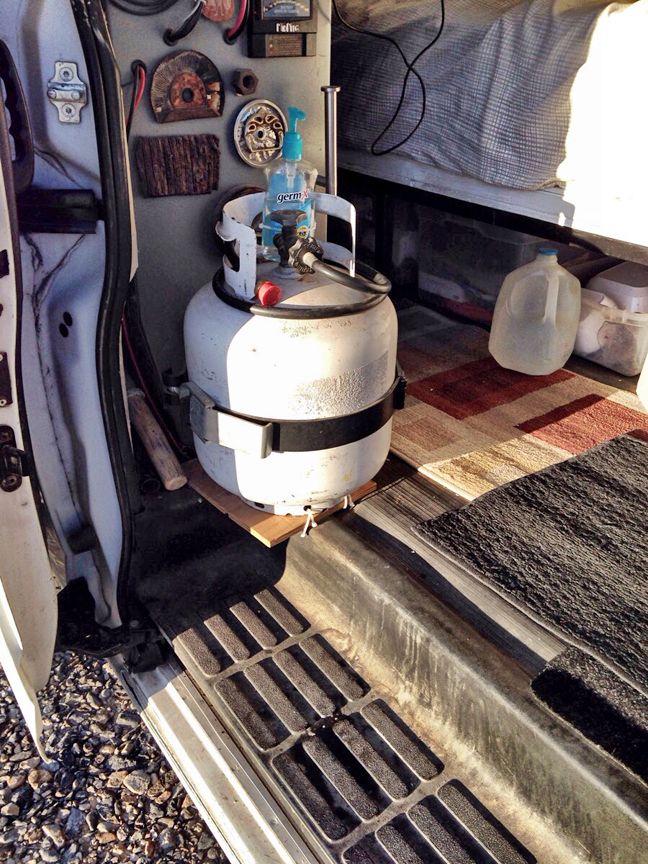Yes, another newbie question. I did a search but didn't readily find what I was looking for.
My inside cooking area will be a table build over my Dometic fridge on the passenger side, just in front of the bed (which is built cross wise not lengthwise); coming even with the aft side door. I'm wondering if it's wise to place the 20lb tank in the back of the van (I have a "garage" area there) and run the hose securely under the bed to the cooking area? I'm a little concerned about it being back there in the "unlikely" event of a rear end collision.......any thoughts? My other thought is to go with a 4.5 lb. tank and store it in my 5 gal. emergency potty bucket with a hole near the top to run the hose from, but I will use that bucket as a seat to cook from so not sure that's wise either .The bucket would be stored securely behind the passenger seat. I like the idea of the smaller tank for easy of storage and cooking, but know it won't run the Mr. Buddy Heater long without refilling...
.The bucket would be stored securely behind the passenger seat. I like the idea of the smaller tank for easy of storage and cooking, but know it won't run the Mr. Buddy Heater long without refilling...
Appreciate your input!
My inside cooking area will be a table build over my Dometic fridge on the passenger side, just in front of the bed (which is built cross wise not lengthwise); coming even with the aft side door. I'm wondering if it's wise to place the 20lb tank in the back of the van (I have a "garage" area there) and run the hose securely under the bed to the cooking area? I'm a little concerned about it being back there in the "unlikely" event of a rear end collision.......any thoughts? My other thought is to go with a 4.5 lb. tank and store it in my 5 gal. emergency potty bucket with a hole near the top to run the hose from, but I will use that bucket as a seat to cook from so not sure that's wise either
Appreciate your input!





